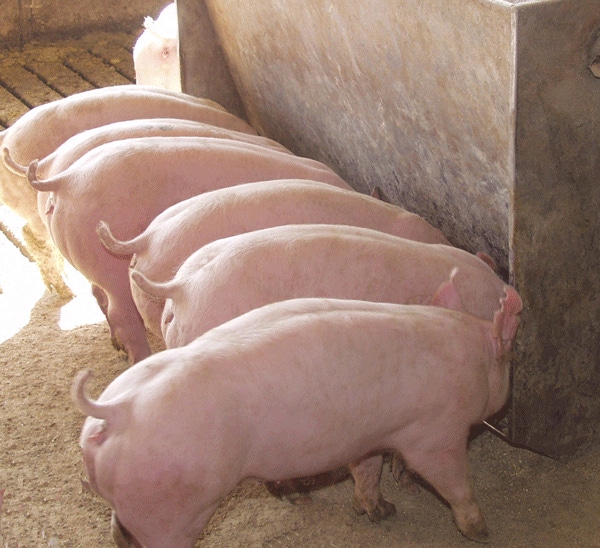May 7, 2014

Oilseed meals are commonly fed to pigs and poultry as sources of protein. The concentration and digestibility of amino acids in oilseed meals has been studied, but these ingredients supply other nutrients in the diet as well. Now researchers at the University of Illinois are providing a more complete picture of the nutritional value that oilseed meal provides.
A team led by Hans H. Stein, a U of I animal sciences professor, evaluated canola seeds, canola meal, cottonseed meal, sunflower seeds, and two types of sunflower meal. The researchers conducted two experiments with growing pigs. In the first, they determined the digestible and metabolizable energy of each ingredient, and in the second they determined the standardized total tract digestibility of phosphorus with and without the addition of microbial phytase.
Stein said from the results, they can conclude that is it possible to include a number of different oilseed porducts in diets, which are fed to pigs to meet the requirements for digestible phosphorus and energy."
He added that the current data provides feed formulators, nutritionists, and swine producers with the data needed to include different oilseed products in diets that are fed to pigs. The ingredients that are most economical to include in diets depend on local availability, as well as cost.
Stein's team found that the concentration of digestible energy in sunflower seeds (6,105 kcal/kg DM) and canola seeds (5,375 kcal/kg DM) was greater than that in soybean meal (4,518 kcal/kg DM) or corn (4,040 kcal/kg DM). Canola meal, sunflower meal, dehulled sunflower meal, and cottonseed meal contained less digestible energy (3,652, 3,238, 3,095, and 3,016 kcal/kg DM respectively) than soybean meal or corn. Metabolizable energy values followed the same pattern: 5,739 kcal/kg DM in sunflower seeds, 5,098 kcal/kg in canola seeds DM, 4,035 kcal/kg DM in soybean meal, 3,942 kcal/kg DM in corn, 3,306 kcal/kg DM in canola meal, 2,998 kcal/kg DM in sunflower meal, 2,860 kcal/kg DM in dehulled sunflower meal, and 2,700 kcal/kg DM in cottonseed meal.
With no phytase added to the diets, the standardized total tract digestibility of phosphorus ranged from as little as 37.4 percent in sunflower meal to 62 percent in soybean meal. Phosphorus digestibility in sunflower seeds (51.7 percent) and canola meal (58 percent) was not different from that in soybean meal, but the value for all other ingredients was less than in soybean meal.
The standardized total tract digestibility of phosphorus in all ingredients improved when phytase was added to the diets, ranging from 54.9 percent in dehulled sunflower meal to 74.6 percent in canola meal and 78 percent in soybean meal. “If phytase is added to the diets, the digestibility of phosphorus in canola seeds, canola meal, and sunflower seeds is not different from the digestibility in soybean meal, but the digestibility of phosphorus in the other ingredients is less than in soybean meal,” Stein explained.
The study, "Energy concentration and phosphorus digestibility in canola, cottonseed, and sunflower products fed to growing pigs," was recently published in the Canadian Journal of Animal Science. Co-authors are Diego Rodríguez and Rommel Sulabo, both former members of the Stein Monogastric Nutrition lab, and current Ph. D. candidate Caroline González-Vega. The full text is online at http://pubs.aic.ca/doi/full/10.4141/cjas2013-020.
You May Also Like



